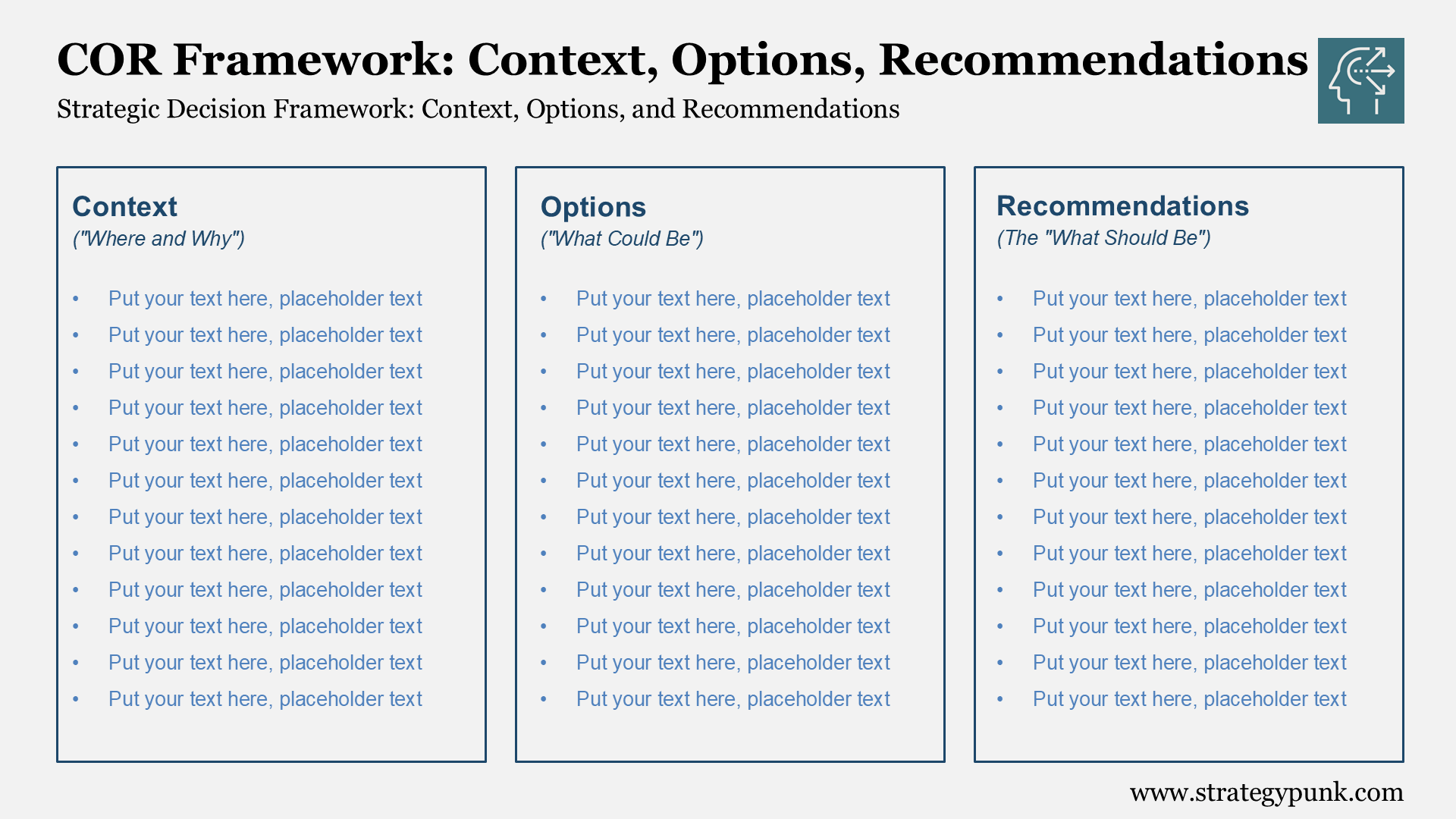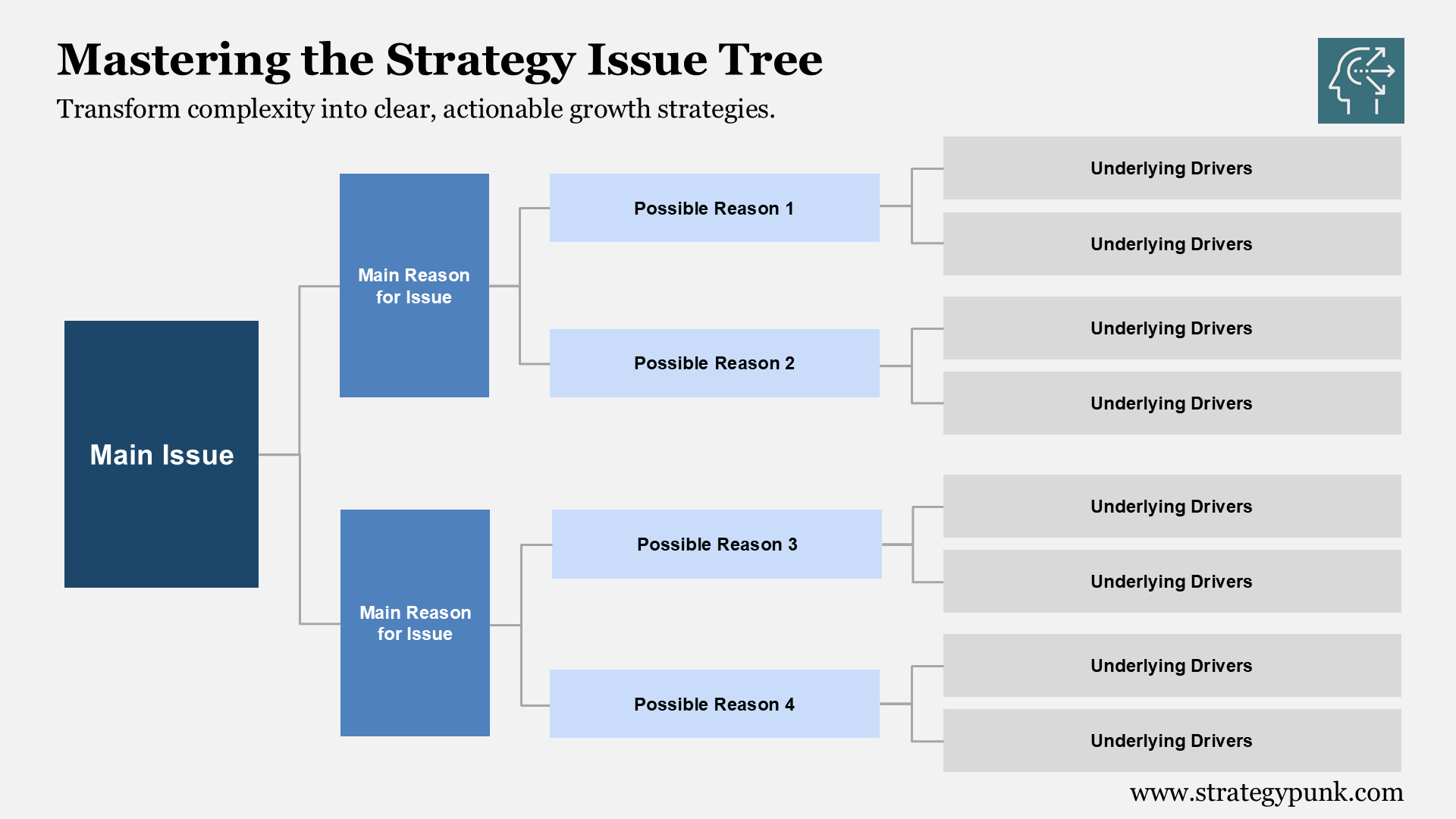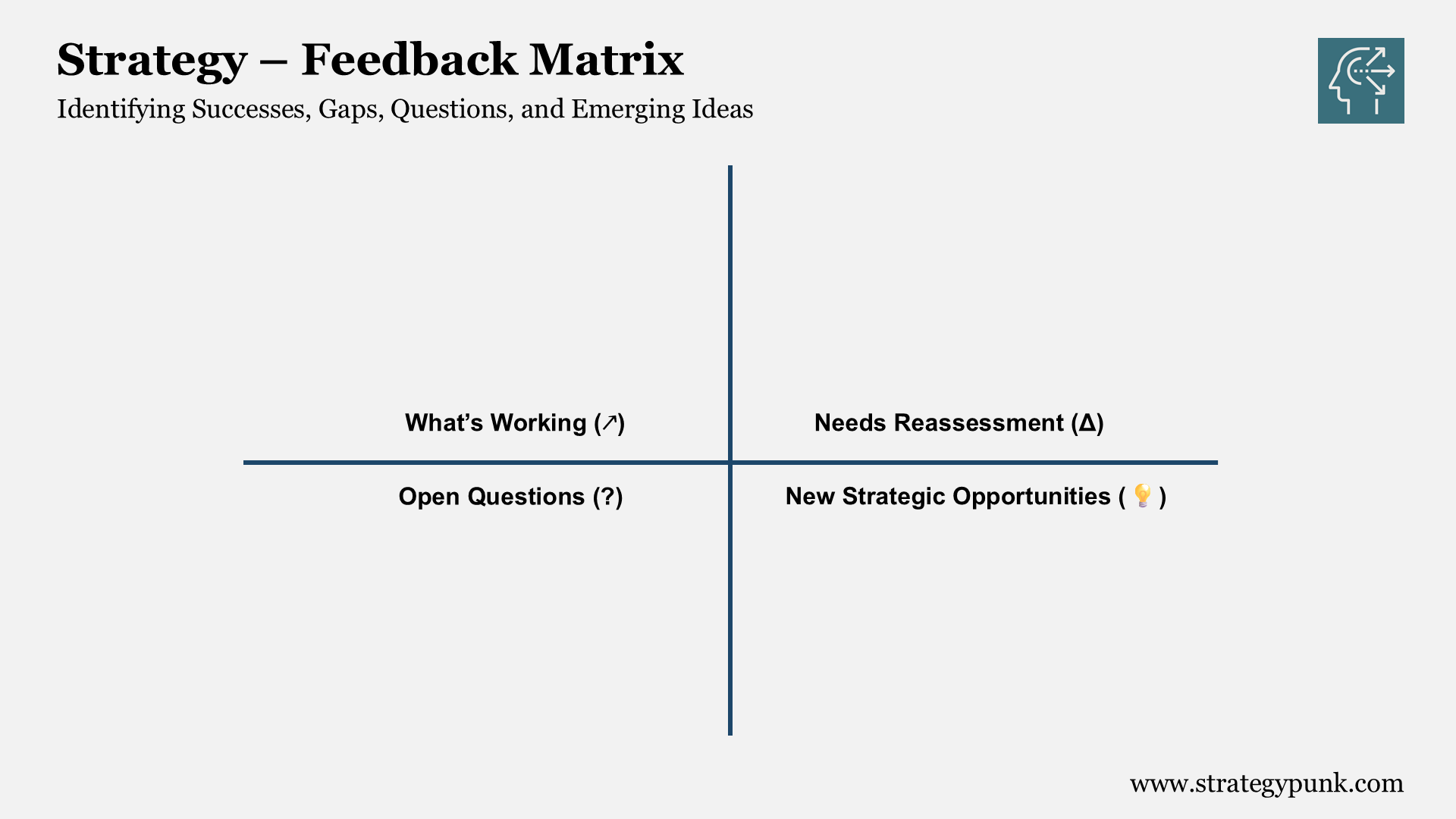The Basics of a PEST / PESTLE Analysis: A Complete Guide (Plus FREE Template)
The Basics of a PEST / PESTLE Analysis: A Complete Guide (Plus FREE Powerpoint and Googel SlidesTemplate)
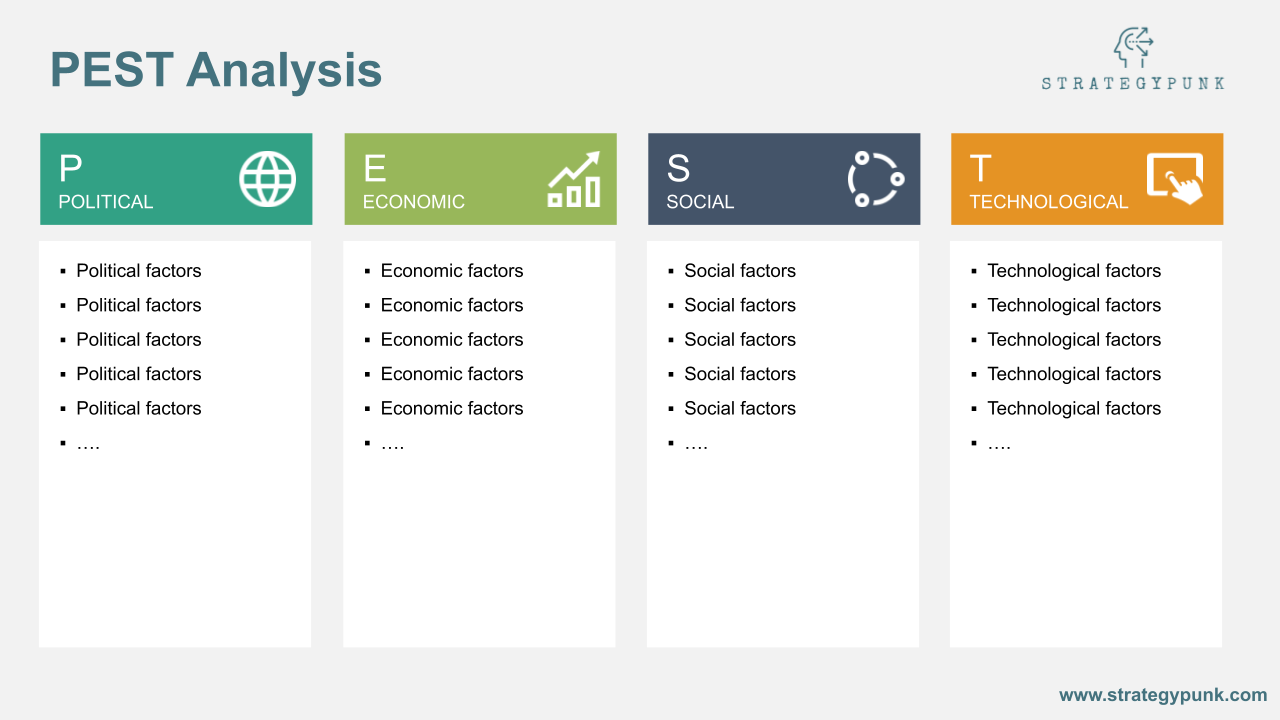
PEST analysis is an acronym that stands for Political, Economic, Social, and Technological factors. PESTLE or PESTEL analysis includes legal and environmental factors.
It is a strategic planning tool used to identify external market forces that have the potential to impact an organization. A PEST analysis can help business leaders identify opportunities and risks to achieve the optimum performance of their company.
This article will discuss the fundamentals of PEST analysis and its uses in the business world. Read on to learn more about this valuable tool for businesses! You can download the FREE and entirely editable PowerPoint and Google Slides templates at the end of the article.
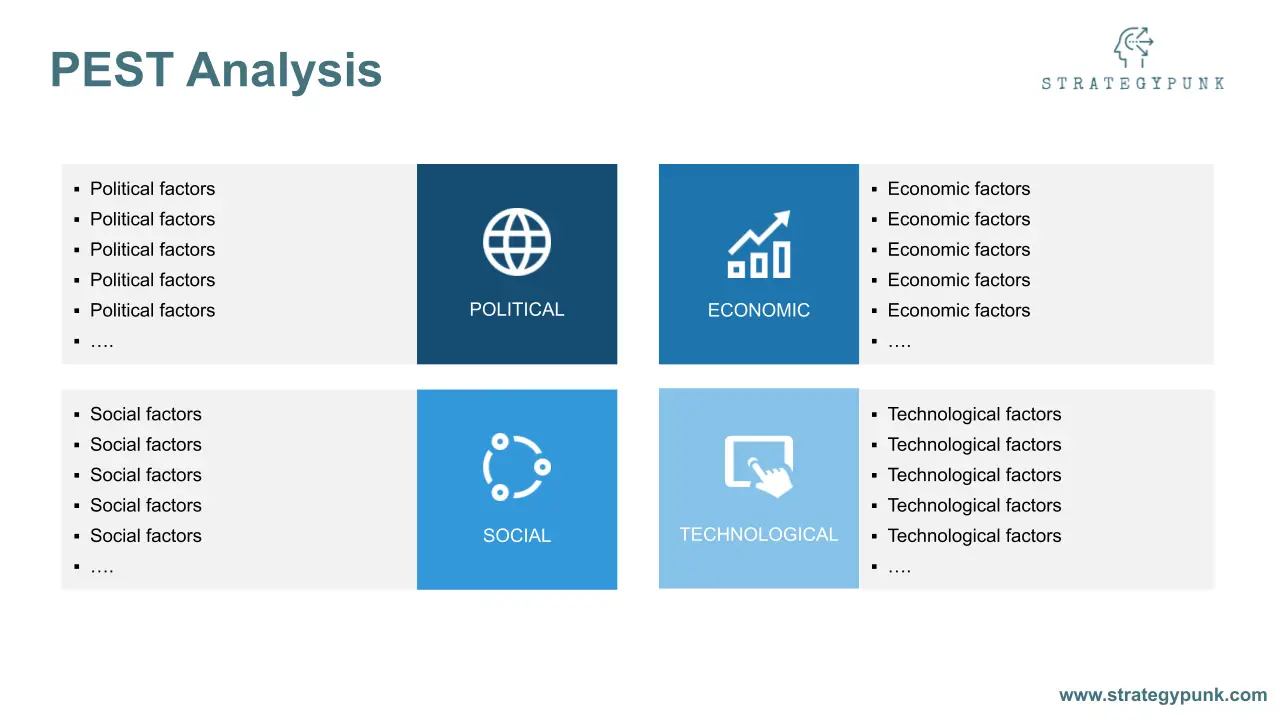
What Is PEST Analysis?
PEST stands for Political, Economic, Social, and Technological factors. It is a strategic planning tool used to identify external market forces that have the potential to impact an organization. When conducting a PEST analysis, analysts examine current and expected conditions in the political, economic, social, technological, and public policy environments.
PEST analysis helps business leaders identify opportunities and risks to achieve their company's optimum performance. It is a broad, general assessment of external factors that may affect an organization. By identifying these known factors, a company can better understand the forces likely to affect its operations and make better strategic decisions.
What are the four factors of PEST analysis?
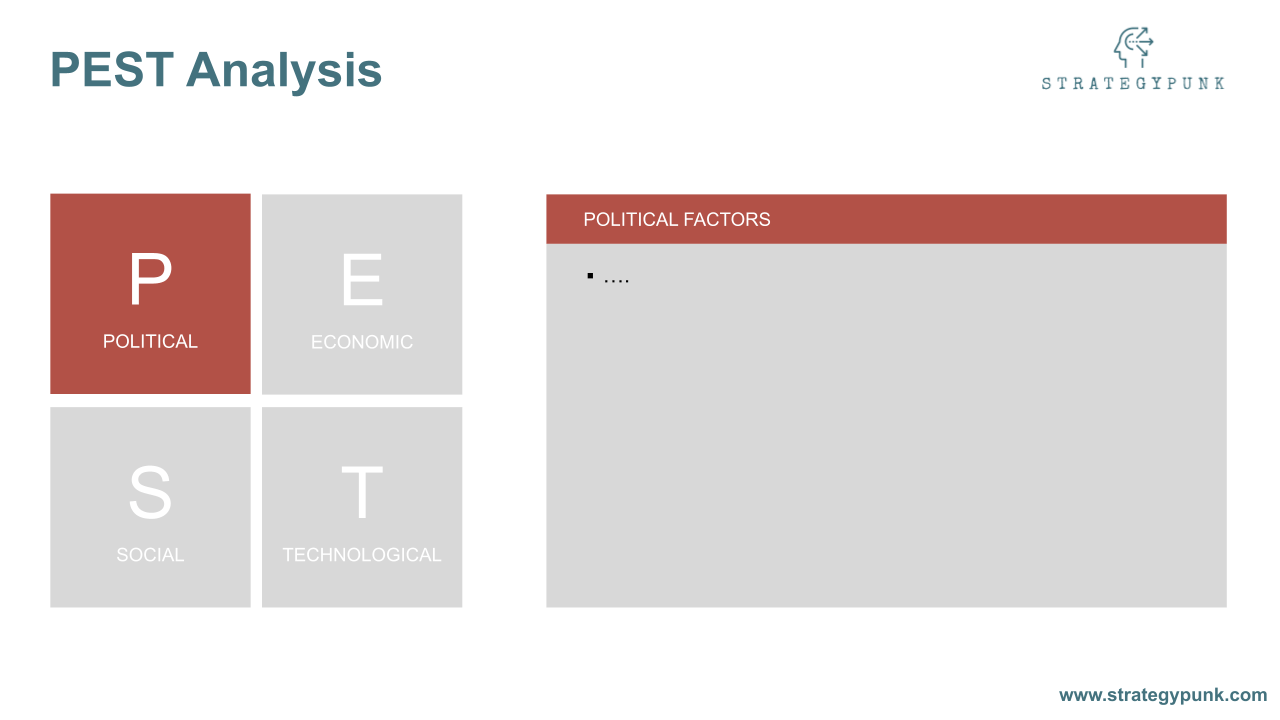
What are the two additional elements of PESTLE analysis?
Often, the PEST Analysis is extended by the Legal and Environmental factors: PESTLE or PESTEL analysis):
- Legal factors include employment law, consumer protection law, or discrimination law; these factors often have a significant impact on the cost level and approval requirements
- Environmental factors include geological aspects like climate, weather, and climate change - all factors with significant impact on how the company can operate and the cost level
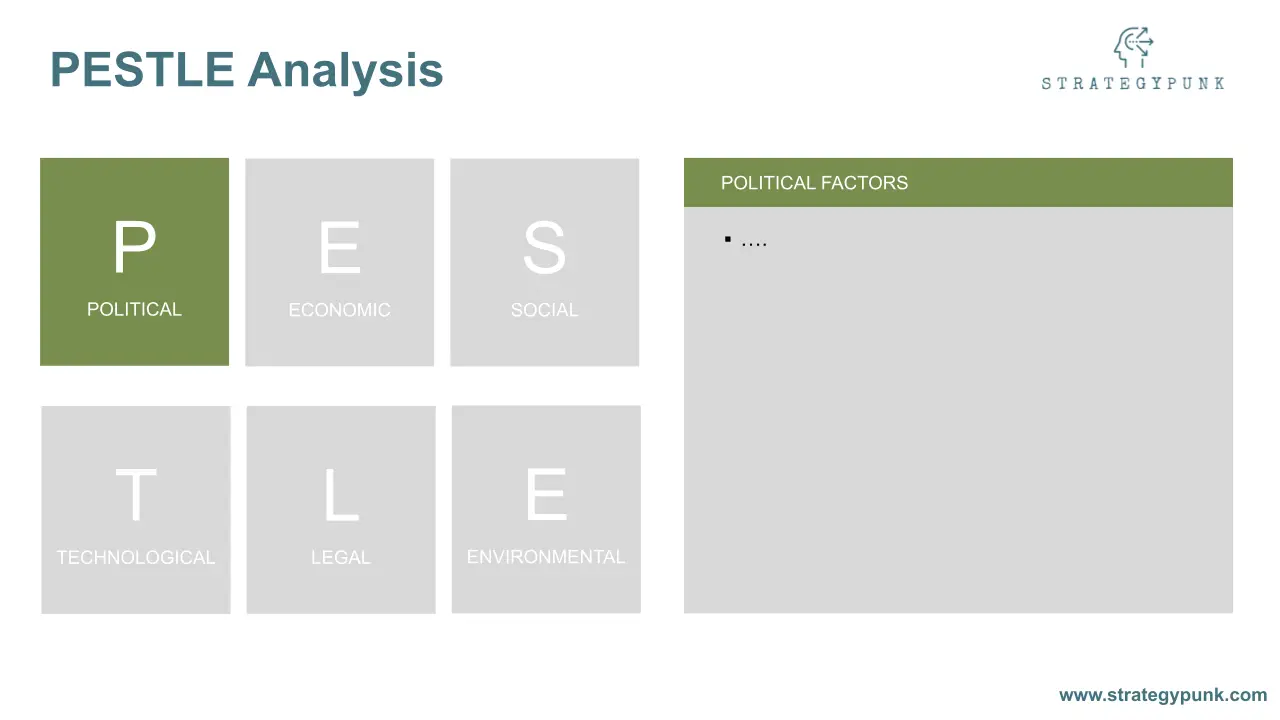
How to Use PEST Analysis
The first step in doing a PEST analysis is determining which factors are most relevant to the organization. Ideally, the PEST factors should be broad enough to cover the organization’s major external factors but narrow enough to provide helpful information.
Once the factors are selected, the next step is to collect information. Sources of information include newspapers and magazines, government publications, trade journals, and reports from industry associations. Now that information has been collected, it must be analyzed and interpreted.
The final step is to use the analysis to form conclusions, identify trends, and make strategic decisions. An organization practicing the PEST analysis can determine the impact of various political, economic, social, and technological factors on its business environment and the result of its operations on its external environment. This information allows the organization to set more practical and realistic goals and make better strategic decisions.
In addition, you can extend the PEST analysis by legal and environmental factors to realize a PESTLE analysis.
What is a PEST analysis example?
Political factors
Political factors affect the business environment by influencing government policies, trade restrictions, and social concerns. These may also include the threat of war, political instability, government actions, and government leadership or social law changes.
Economic factors
Economic factors affect a business by driving demand, prices, and costs. They also affect the availability of capital and its cash flow management. These forces may include inflation, economic growth or recession, monetary policies, and changes in interest rates.
Social factors
Social factors have an effect by changing the preferences and lifestyles of customers, suppliers, and staff. These forces may include demographic changes, cultural trends, public health concerns, social laws, availability and cost of labor, and technological advances.
Technological factors
Technological forces affect a business by changing the types of products, services, and technologies available. They may include information technology and telecommunications advances, potential breakthroughs, and government funding.
Benefits of a PEST analysis
A PEST analysis can also help companies identify opportunities and risks in their environments and determine how to respond to these opportunities and threats effectively.
The PEST analysis can determine which markets are best for expansion, which industries are more profitable, and which technologies are more promising. It can also be used to assess threats and opportunities in the political, economic, social, and technological areas and the public policy environment.
PEST analysis disadvantages and limitations
Although applicable in many situations, PEST analysis broadly assesses external factors. Therefore, it provides less detail than a more specific analysis might.
Although PEST analysis can help companies identify opportunities and risks in their external environments, it cannot be used to assess internal issues. For example, it cannot be used to determine management problems or other operations relating to the organization. To evaluate internal issues, you can use our SWOT PowerPoint template.
Advantages of PEST Analysis for a Marketing Brief
PEST analysis is an effective marketing tool because it can help marketers understand the general market conditions and customers' behavior and expectations. It analyzes the external factors that can impact the business and the internal factors that can help the company thrive.
It can help companies understand the target region's cultural, political, economic, and technological aspects. This can help companies understand their target customers and general market conditions. PEST Analysis can be used to formulate an effective marketing brief for a brand.
Which part of the SWOT analysis is related to the PEST analysis?
Although a PEST analysis is broader in scope than a SWOT analysis, it is related to it in a sense. The political, economic, social, and technological factors of a PEST analysis are similar to the internal strengths and weaknesses of a SWOT analysis.
Therefore, a PEST analysis is related to a SWOT analysis. A business's strengths and weaknesses are internal issues related to its operations.
To complete your strategic analysis, please use our free SWOT PowerPoint template.
PEST / PESTLE Analysis Conclusion
A PEST analysis is a broad, general assessment of external factors that may affect an organization. The factors listed in a PEST analysis are extensive categories common to almost every country in the world. By identifying these general factors, a company can better understand the forces likely to affect its operations and make better strategic decisions. A PEST analysis can help companies identify opportunities and risks in their external environment and how to respond to them.



